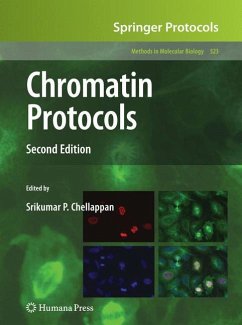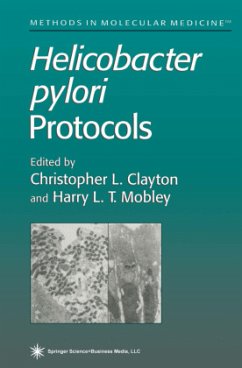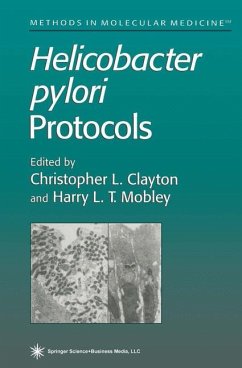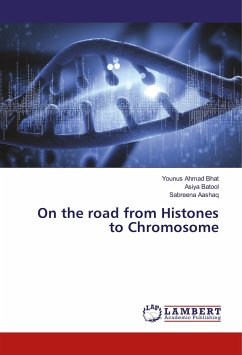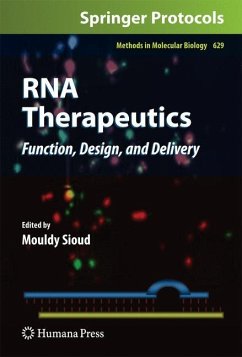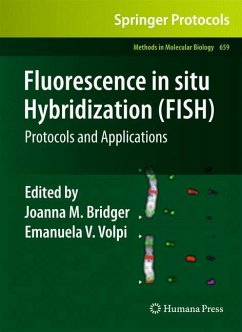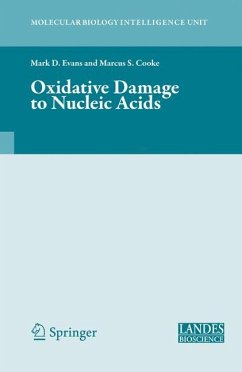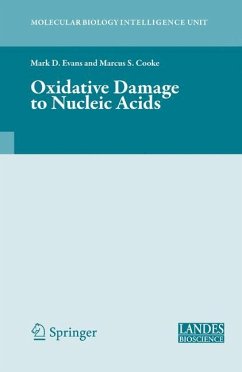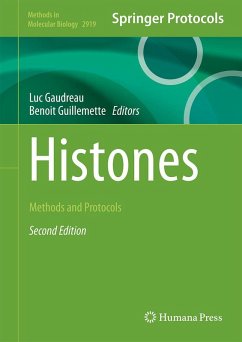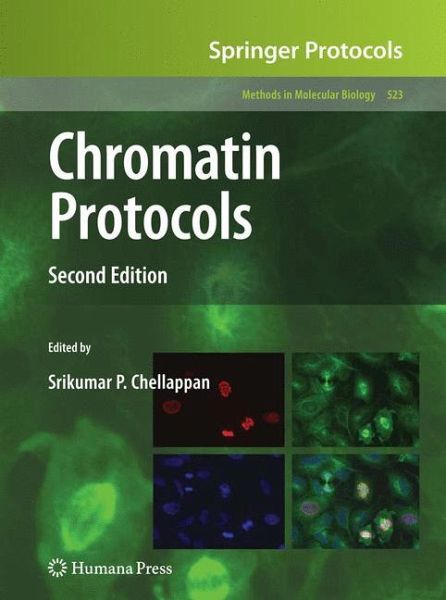
Chromatin Protocols
Versandkostenfrei!
Versandfertig in 6-10 Tagen
75,99 €
inkl. MwSt.

PAYBACK Punkte
38 °P sammeln!
Significant advancements have been made in the study of chromatin structure and function over the past fifty years but none as spectacular as those made in the last decade due to the development of novel techniques and the ability to sequence large stretches of DNA. In Chromatin Protocols, Second Edition, expert researchers delineate these cutting-edge techniques via step-by-step laboratory methods and protocols, which encompass a wide array of topics from the isolation of nucleosomes, assembly of nucleosomes and study of the basic chromatin structure to detailed analysis of histone modificati...
Significant advancements have been made in the study of chromatin structure and function over the past fifty years but none as spectacular as those made in the last decade due to the development of novel techniques and the ability to sequence large stretches of DNA. In Chromatin Protocols, Second Edition, expert researchers delineate these cutting-edge techniques via step-by-step laboratory methods and protocols, which encompass a wide array of topics from the isolation of nucleosomes, assembly of nucleosomes and study of the basic chromatin structure to detailed analysis of histone modifications and chromatin function. Written in the highly successful Methods in Molecular Biology(TM) series style, chapters include brief introductions to the subjects, lists of the necessary materials and reagents, readily reproducible protocols, and Notes sections which highlight tips on troubleshooting and avoiding known pitfalls.
Comprehensive and up-to-date, Chromatin Protocols, Second Edition is a valuable tool for scientists studying various aspects of chromatin function and an ideal guide to aid in the development of new techniques as well as new ideas in the field of chromatin biology.
Comprehensive and up-to-date, Chromatin Protocols, Second Edition is a valuable tool for scientists studying various aspects of chromatin function and an ideal guide to aid in the development of new techniques as well as new ideas in the field of chromatin biology.





